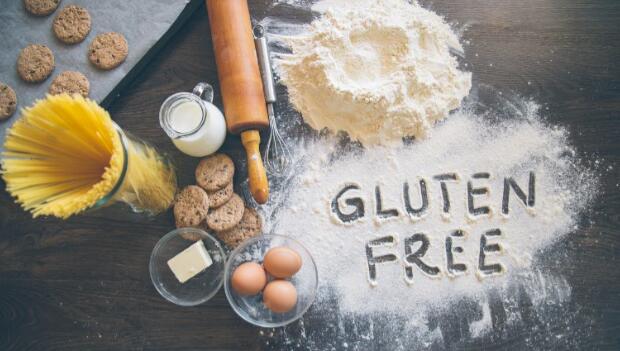
During Le Tour de France in 2009, team Garmin-Slipstream limited inflammatory foods in their diet to promote optimal recovery from grueling climbs and muscle-burning time trials. Included on the list of inflammatory foods were items containing gluten, a protein in wheat, barley and rye. Gluten is most commonly found in breads, pastas and crackers but it also creeps into foods like soy sauce and chicken broth.
Gluten is a large, cumbersome protein that our bodies cannot digest completely. This leads to irritation of our intestinal lining which causes inflammation, and inflammation in the digestive tract leads to an upset stomach. Who hasn't experienced pre-race jitters with frequent bathroom breaks or bloating? Nearly all athletes have had some gastro-complaint whether it's heartburn, gas, irregular bowel movements or painful cramps. Limiting gluten could help reduce these symptoms allowing you to experience improved exercise performance and overall well being.
Aside from minimizing stomach complaints, limiting gluten can lead to better digestion and absorption of food. Exhaustive exercise increases nutritional needs and your body needs all of the important nutrients that you consume, which means keeping the intestinal lining strong and absorbent. Irritation in the gut leads to poor absorption of the foods that you eat. Over time this could lead to reduced energy and nutrient deficiencies, both of which negatively impact exercise performance.
Chronic intestinal inflammation also slows recovery from exercise, impedes muscle growth and increases susceptibility to catching colds or viruses. Limiting gluten would reduce inflammation in the body allowing it to work like the well-oiled machine you desire.
Limiting gluten in your diet will hopefully increase the nutritional quality of your food choices. The most common gluten-containing foods in an athlete's diet are: bagels, pasta, crackers and pretzels. Other items include cookies, pastries, cakes and other high sugar items. These foods do provide carbohydrates--the ever-important nutrient for exercise--but that's about it. These foods are low in antioxidants, minerals, protein and fiber. They are often empty-calorie foods with unnecessary and unhealthy added fats, sugar, salt and preservatives.
Mix it up: There are plenty of gluten-free, but carbohydrate-rich, foods you can incorporate into your diet. These include:
- Fruit
- Beans, lentils, hummus, and fat free bean dip
- Brown rice, millet, amaranth, quinoa, and buckwheat (and breads, pastas and crackers made from these grains)
- Sweet potatoes, winter squash and corn
A diet full of these nutrient dense foods promotes muscle building, lean body composition, a strong immune system and stable blood sugar levels.
Need more help? Here are some examples of gluten-free, carbohydrate-rich meals that can help fuel a workout or promote recovery:
- Scrambled eggs with black beans, salsa and a corn tortilla
- Brown rice bread topped with almond butter and raspberries
- Marinara sauce over spaghetti squash and white beans
- Quinoa, millet or amaranth pilaf with nuts, seeds and dried fruit
- Salmon salad with grapes, almonds and curry powder
It's not necessary to completely eliminate gluten unless you have gluten intolerance or celiac disease. One in 133 people have celiac disease, an autoimmune disease in which the immune system attacks the gut lining when gluten is ingested, destroying the integrity of the digestive tract. The treatment for celiac disease is complete removal of gluten from the diet. For those with celiac disease, a gluten-free diet is not a 'fad' diet; it is the lifelong treatment for a disease. Symptoms of celiac disease are constipation, diarrhea, bloating, gas, low bone density, fatigue, anemia, depression, infertility and a host of other symptoms. Talk with your doctor if you identify with any of these symptoms.
When you limit gluten in your diet, take note of any changes to your overall well being. If you notice improvements on a low gluten diet, consider the possibility of celiac disease. If you suspect that you are intolerant to gluten, pursue a diagnosis of celiac disease prior to completely eliminating gluten from your diet. Once gluten has been removed from your diet, there is no way to confirm a diagnosis of celiac disease.
Gluten intolerance affects everybody differently so the health and performance affects of reducing gluten will vary from person to person. But if the pros can benefit from low gluten, so can you. Go ahead, trade your bagel for a bowl of oatmeal and see for yourself.


